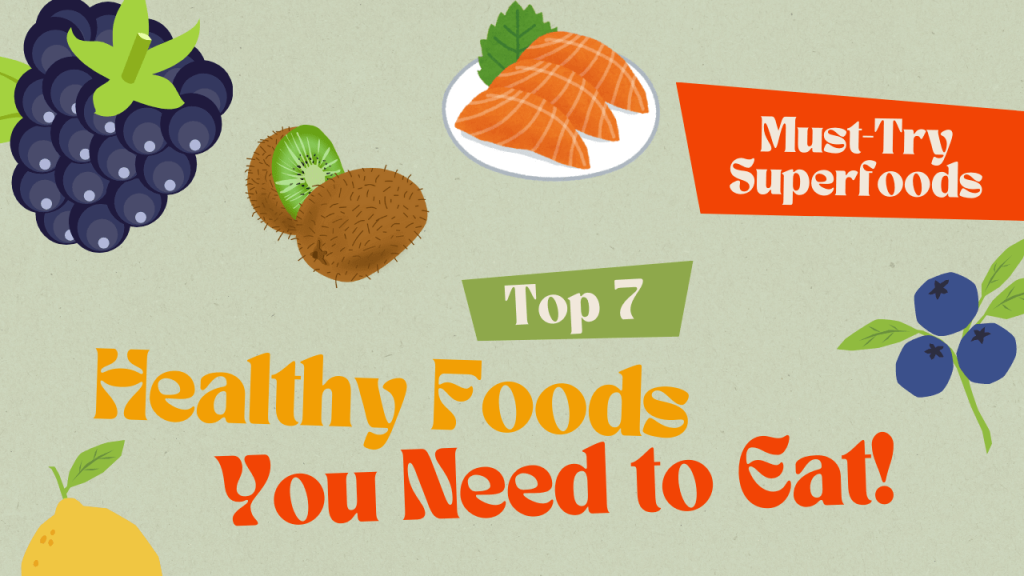Maintaining a healthy lifestyle starts with proper nutrition.
In 2025, advancements in food technology and a growing awareness of personalized nutrition have made it easier to adopt healthier habits.
If you want to boost energy, improve immunity, or achieve balance in your diet, small changes can make a big difference.
Here are 10 simple nutrition tips to help you embrace a healthier lifestyle this year.
1. Prioritize Whole Foods Over Processed Options
Whole foods, such as fruits, vegetables, whole grains, and lean proteins, are packed with essential nutrients. They are free from artificial additives and provide your body with the fuel it needs to thrive. Opt for minimally processed options whenever possible.
For example, choose oatmeal over sugary cereals and fresh produce over canned goods with added sodium.
Incorporating whole foods into your diet can be as simple as preparing meals at home and avoiding pre-packaged snacks.
2. Embrace Plant-Based Eating
Plant-based diets have continued to gain momentum in 2025, thanks to their health and environmental benefits.
Plant-based proteins like lentils, chickpeas, quinoa, and tofu are excellent alternatives to animal-based options.
Even if you’re not ready to give up meat entirely, consider starting with a “Meatless Monday” or replacing one meal a day with plant-based options. Small steps like these can have a significant impact on your health and the planet.
3. Stay Hydrated with Nutrient-Rich Beverages
Proper hydration is essential for energy, digestion, and overall well-being.
While water remains the best choice, nutrient-rich beverages such as infused water, herbal teas, and low-sugar electrolyte drinks can enhance hydration.
Add fresh fruits, herbs, or a splash of natural juice to your water for extra flavor without added sugars.
To ensure you’re drinking enough, track your water intake using apps or smart bottles that remind you to stay hydrated.
4. Practice Portion Control
Portion control is key to maintaining a balanced diet and preventing overeating.
Use visual cues like the plate method—half your plate for vegetables, a quarter for protein, and a quarter for whole grains—to guide your meals.
For snacks, opt for single-serving packages or measure portions to avoid mindless munching.
In 2025, portion control gadgets and smart plates make it easier to monitor serving sizes and ensure you’re eating mindfully.
5. Incorporate Functional Foods
Functional foods are those that offer health benefits beyond basic nutrition. In 2025, options like probiotics for gut health, omega-3-rich foods for brain health, and antioxidant-packed berries for immunity are widely available.
Examples include yogurt, flaxseeds, and blueberries. Incorporate these foods into your diet by adding them to smoothies, salads, or snacks for an easy nutritional boost.
6. Reduce Added Sugars and Artificial Sweeteners
Excessive sugar intake can lead to health issues like weight gain and diabetes. Artificial sweeteners, while marketed as a healthier alternative, can sometimes disrupt your metabolism.
Instead, opt for natural sweeteners like honey, maple syrup, or stevia in moderation.
Fresh fruits are also a great way to satisfy your sweet tooth. When grocery shopping, read nutrition labels carefully to identify hidden sugars in packaged foods.
7. Eat Mindfully
Mindful eating involves paying attention to your food and enjoying the experience without distractions.
It helps improve digestion, prevents overeating, and allows you to savor your meals.
Practice mindful eating by chewing slowly, putting your fork down between bites, and avoiding screens during meals.
Apps and guided mindfulness practices can help you develop this habit over time.
8. Optimize Meal Timing
Eating meals at consistent times can support energy levels and metabolism. In 2025, many people are exploring intermittent fasting, which involves eating during specific windows of time.
While this approach isn’t for everyone, maintaining a regular eating schedule can still be beneficial.
Aim for balanced meals and snacks spaced throughout the day to keep your energy steady and avoid late-night eating.
9. Use Technology to Support Your Nutrition Goals
Technology has revolutionized how we approach nutrition. In 2025, AI-powered apps and wearable devices can track your caloric intake, suggest personalized meal plans, and even monitor hydration levels.
These tools provide insights tailored to your needs, making it easier to stay on track.
Explore options like nutrition trackers, meal planning apps, and wearable tech to find what works best for you.
10. Make Nutrition Sustainable and Enjoyable
Sustainability is a crucial aspect of nutrition. Reducing food waste, choosing eco-friendly packaging, and supporting local farms are all ways to make your diet more sustainable. At the same time, it’s important to find joy in your food.
Celebrate cultural and seasonal dishes that bring comfort and satisfaction.
By striking a balance between health goals and enjoyment, you can create a diet that’s both nourishing and sustainable.
Final Thoughts
Adopting healthier eating habits doesn’t have to be overwhelming. By incorporating these 10 simple tips into your daily routine, you can take significant steps toward a healthier lifestyle in 2025.
Start small, stay consistent, and remember that every positive change adds up.
What’s one nutrition goal you can set for yourself this week?
Begin today, and embrace the benefits of smarter, healthier choices!



